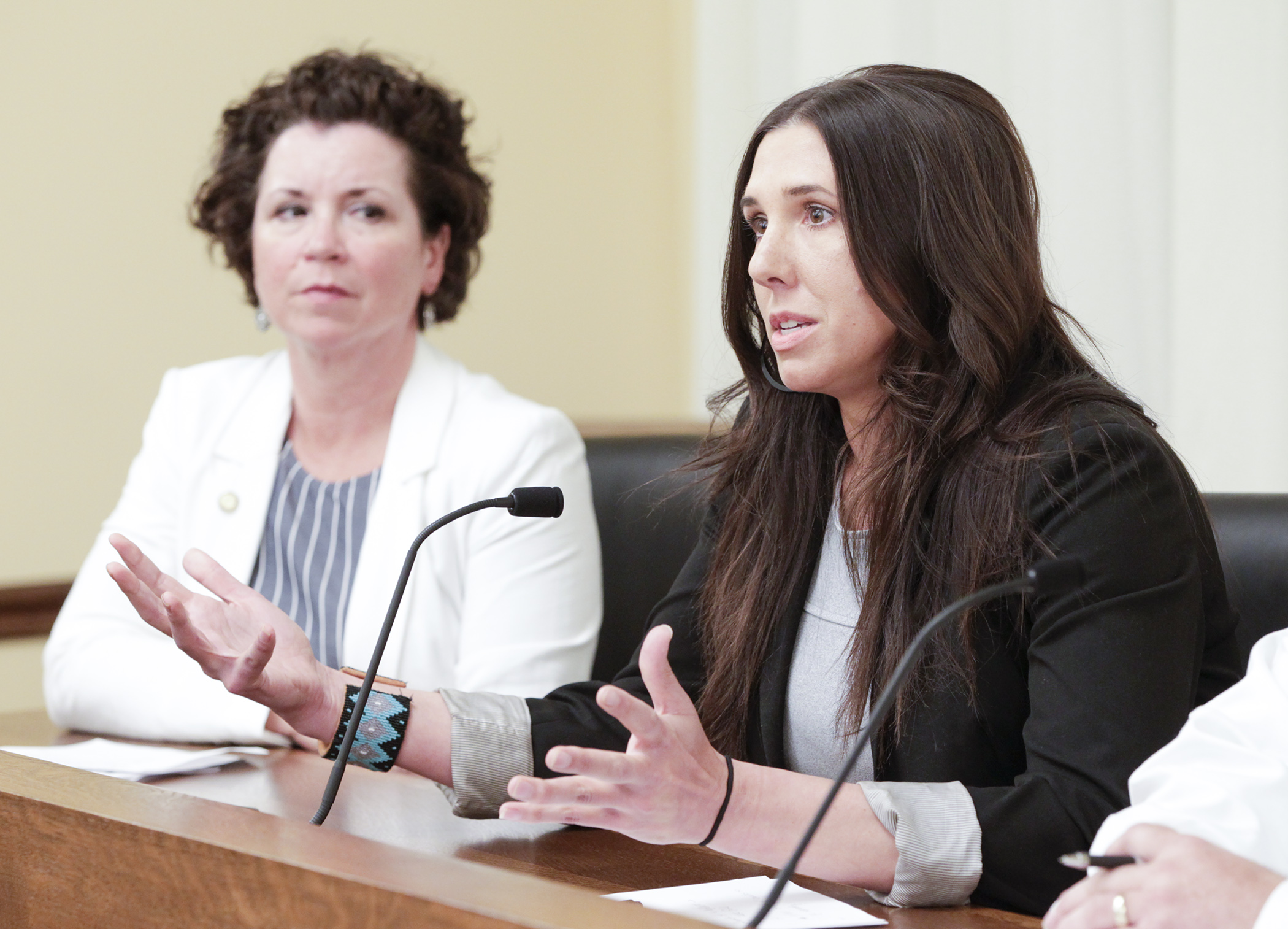Jurisdictional restrictions on tribal police could be removed

As it stands now, a tribal police department cannot enforce state law on tribal lands unless it first signs a cooperative agreement with the local county sheriff’s department.
Imposing that condition on a sovereign nation is unjust and unnecessary, said Rep. Mary Kunesh-Podein (DFL-New Brighton), who, with Sen. Michael Goggin (R-Red Wing), sponsors HF719/SF1100* to remove that legal requirement and allow jurisdictional law enforcement authority to tribal land regardless of whether a cooperative agreement exists.
“This change will … ensure that the tribal police officers are always allowed to enforce the law on their tribal lands,” said Kunesh-Podein.
Amended to include the House language, the bill was approved Monday by the House Public Safety and Criminal Justice Reform Finance and Policy Division and sent to the House Floor. The Senate version was passed 58-7 by that body May 8.
Discussion focused on whether the proposed change would reclassify tribal police departments as “private entities.” Rep. Brian Johnson (R-Cambridge) said he would have “serious reservations” with the bill if resulted in that change, which he said would make tribal governments immune to lawsuits.
Prairie Island Police Chief Jon Priem and Jessie Seim, general counsel for the Prairie Island Indian Community, assured members the proposed legislation would not result in that change.
“The tribe is liable for its torts and claims,” said Priem. “We have to carry insurance for that purpose, just like any other municipality in the state of Minnesota.”
Seim said the notion that without a cooperative agreement in effect a tribal government is no longer considered a government agency is a “fundamental misunderstanding” of the sovereign relationship between tribes and the state of Minnesota.
The House language is also in its version of the omnibus judiciary and public safety bill (HF2792/SF802*) currently in conference committee.
Related Articles
Search Session Daily
Advanced Search OptionsPriority Dailies
Ways and Means Committee OKs proposed $512 million supplemental budget on party-line vote
By Mike Cook Meeting more needs or fiscal irresponsibility is one way to sum up the differences among the two parties on a supplemental spending package a year after a $72 billion state budg...
Meeting more needs or fiscal irresponsibility is one way to sum up the differences among the two parties on a supplemental spending package a year after a $72 billion state budg...
Minnesota’s projected budget surplus balloons to $3.7 billion, but fiscal pressure still looms
By Rob Hubbard Just as Minnesota has experienced a warmer winter than usual, so has the state’s budget outlook warmed over the past few months.
On Thursday, Minnesota Management and Budget...
Just as Minnesota has experienced a warmer winter than usual, so has the state’s budget outlook warmed over the past few months.
On Thursday, Minnesota Management and Budget...